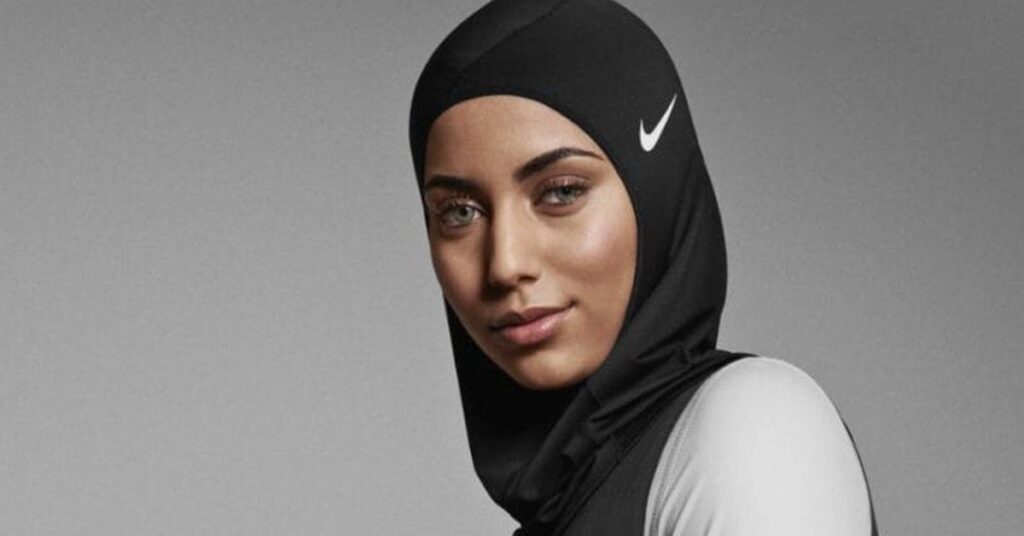*This post of mine is published in The New York Times/Women in the World.*
“Pro-Hijab,” Nike’s new performance hijab line, specifically designed for Muslim women athletes, will not officially be in stores until the spring of 2018, but its extensive marketing campaign is already under way.
As the sports apparel giant turns to the Middle East for its latest market expansion, it is using women’s empowerment as the product line’s official platform.
The company is also working with some of the most prominent female athletes in the region for the “Pro-Hijab” campaign, including the United Arab Emirates’ first woman figure skater, Zahra Lari.
Nike even produced a now viral short film titled, “What Will They Say About You?” that’s narrated by Saudi actress Fatima Al-Banawi and tells the stories of five Middle Eastern women achieving success through sport.
“The film aims to highlight the stories of amazing athletes to encourage and inspire others,” Hind Rasheed, Nike’s communication manager in Dubai, told CNN, explaining that Nike wanted “to use the power of sport to change society positively.”
But how much of Nike’s new mission spotlighting the empowerment of women and girls in the Middle East is actually pro-hijab and not just pro-profit?

Until push comes to shove and Nike is forced to prove its mettle on the issue, the latter is more likely the principal driving force for the company, and honestly, who could blame Nike? It is joining other billion dollar brands by venturing into the extremely lucrative and growing “Muslim fashion” market.
According to the 2015-2016 State of the Global Islamic Economy Report, Muslim consumers spend an estimated $230 billion on clothing, a number that is expected to increase to $327 billion by 2019, more than the combined clothing markets of the U.K. ($107 billion), Germany ($99 billion) and India ($96 billion).
Other major brands have noted the numbers, and companies such as DKNY, H&M and Dolce & Gabbana, which offers an abaya and hijab line, are already creating special collections geared to the Muslim market. Despite having a bottom line that is all business- and profit-related, Nike’s timing to launch what is ultimately a positive campaign around the hijab, in many ways, could not be better.
Despite having a bottom line that is all business- and profit-related, Nike’s timing to launch what is ultimately a positive campaign around the hijab, in many ways, could not be better.
The controversial garment has prompted bans in countries around Europe, and the international soccer organization, FIFA, lifted its own ban on religious headgear just two years ago. FIBA, the international basketball organization, still maintains its ban. Muslim women athletes’ clothing is literally stopping them from competing professionally.
With the creation of “Pro Hijab,” Nike is also generating a largely positive conversation around the Islamic garment during an undeniable period of increased Islamaphobia, especially in the U.S.
Studies show that attacks on American Muslims and their places of worship have reached a post-9/11 high in recent months, and the Trump administration has attempted to implement what is effectively a “Muslim ban,” targeting people from only Muslim-majority countries.
“Corporate media only talks about headscarves in terms of fashion trends or political ideology,” Amani Al-Khatahtbeh, founder of MuslimGirl.com and Forbes 30 Under 30 honoree, told me. “Our society only finds hijab acceptable when it conforms to Western trends, yet turns a blind eye when Muslim women are targeted for wearing it in today’s heightened Islamophobia.”
Al-Khatahtbeh said that corporations are quick to profit off of the hijab even while governments continue to impose laws that either restrict or enforce wearing the hijab. (On Tuesday, Europe’s top court ruled that businesses are allowed to ban employees from wearing hijabs in the workplace.) She says she considers the hijab as a symbol of defiance, and contends that despite the current rise of anti-Muslim rhetoric and sentiment, the hijab remains more a political statement than a fashionable one.
So just how “pro-hijab” is Nike willing to be? Will we see the company come to the defense of Muslim women who are denied entry into the U.S. because of their faith? Will we see the company denounce Islamophobia? How committed is it to the empowerment of women and girls in the Middle East versus just tapping into a market worth millions?
Although the challenges women and girls in the region face are very real, Nike seizing on this market is a strategic business decision, and not about planting the seeds of a revolution to empower Arab women.
And there is nothing wrong with that. After all, Nike is a business, not a social-justice organization.
But please let us not even pretend that Nike will be the vehicle that delivers women’s empowerment to the Middle East, an issue that despite key advances, still has major hurdles to overcome — from voting rights to driving rights to basically allowing 50 percent of its population to fully participate in society.
Nike’s “Pro-Hijab” is 100 percent about profit. If we are really going to applaud the company for anything, it should be for its great timing and effective marketing.
*This post of mine is published in The New York Times/Women in the World.*
